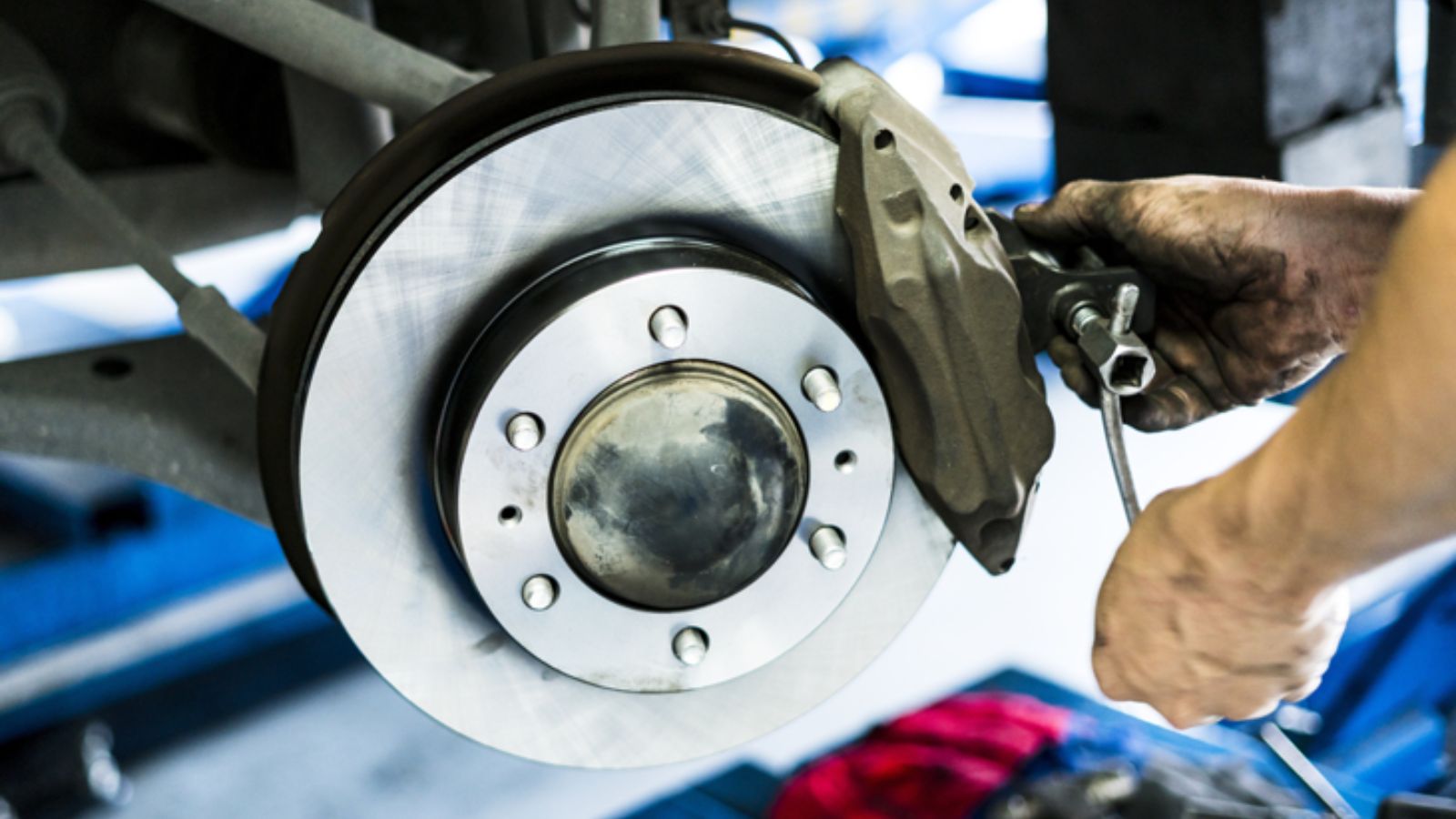Your vehicle’s brakes are its most critical safety feature, ensuring you can stop quickly and effectively when needed. Without regular checks, brake issues can go unnoticed, potentially leading to dangerous situations on the road. Making brake inspections a routine part of your vehicle maintenance is essential for your safety and the safety of others.
Many drivers overlook the importance of brake checks, often assuming that as long as the brakes function, all is well. However, wear and tear can create subtle problems that may not be immediately apparent. By prioritising regular inspections, you gain peace of mind knowing you’re taking proactive steps to keep yourself safe while driving.

Understanding Brake Systems
Brake systems play a crucial role in your vehicle’s performance and safety. Familiarising yourself with how they work and recognising signs of wear can help you maintain optimal braking function.
Components and Function
A typical brake system comprises several key components:
- Brake Pads: These create friction against the brake discs to slow down or stop your vehicle.
- Brake Discs (Rotors): They are the surfaces that the brake pads grip. When the pads press against the discs, your car slows down.
- Brake Calipers: These house the brake pads and use hydraulic pressure to squeeze them against the discs.
- Brake Fluid: This fluid transmits the force from your foot on the pedal to the brake components.
Each part works together to ensure effective braking. Regular checks can help identify any misalignments or faults.
Signs of Wear and Tear
Being aware of warning signs helps maintain your brake system. Look out for:
- Squeaking or Squealing Noises: These sounds often indicate worn brake pads that need replacement.
- Vibrations in the Brake Pedal: This could signal warped brake discs, affecting braking efficiency.
- Pulling to One Side: If your vehicle veers left or right when braking, there may be uneven wear on the pads or issues with the callipers.
- Brake Warning Lights: An illuminated brake warning light on your dashboard is a signal that something requires immediate attention.
Addressing these signs promptly can prevent further damage and ensure your safety on the road.
Benefits of Regular Brake Inspections
Regular brake inspections provide vital benefits that can enhance your safety and save you money. Staying proactive with your brake maintenance ensures optimal performance and can prevent costly repairs down the line.
Preventative Maintenance
Conducting regular brake inspections allows you to identify issues before they escalate. You can spot worn brake pads, fluid leaks, or other potential problems early.
Addressing these concerns promptly can help maintain your vehicle’s braking efficiency. This practice not only contributes to your safety but also extends the lifespan of your brakes.
Committing to regular inspections guarantees that your braking system operates reliably when you need it most, especially in emergencies. It builds your confidence in your vehicle, knowing it’s in good condition.
Cost Savings
Proactive brake maintenance can lead to significant cost savings over time. Regular inspections mean you can catch small problems before they develop into major repairs.
You might avoid the hefty costs associated with replacing damaged rotors or calipers, which can occur from neglecting maintenance.
Furthermore, maintaining optimal brake performance can improve fuel efficiency, as worn brakes often cause your vehicle to work harder. Investing in regular checks is a smart way to protect your wallet and ensure safer driving conditions.
How Often Should Brakes Be Checked?
Regular brake checks are crucial for maintaining your vehicle’s safety. Understanding the recommended frequency can help ensure you avoid potential issues on the road.
Manufacturer Recommendations
Most vehicle manufacturers suggest checking your brakes at least every 10,000 to 12,000 miles. This includes inspecting the brake pads, discs, and fluid levels.
You should also consult your owner’s manual for specific guidance, as recommendations can vary by model. If you notice any unusual sounds, such as squeaking or grinding, you should have your brakes assessed immediately, regardless of mileage.
Additionally, if your vehicle uses a brake warning light, pay close attention to it. Regular checks based on manufacturer recommendations help mitigate the risk of brake failure.
Driving Habits and Conditions
Your driving habits significantly influence how often you should check your brakes. If you frequently drive in heavy traffic or on steep hills, you may want to schedule checks more often.
Aggressive driving, rapid acceleration, and hard braking all contribute to quicker wear and tear. In such cases, consider checking your brakes every 5,000 to 7,500 miles.
Weather conditions also play a role. Driving in wet or icy environments can impact braking performance, making it essential to monitor your brakes more closely. Regular maintenance ensures that your brakes remain reliable under various conditions.
Professional vs DIY Brake Checks
Choosing between professional brake checks and handling it yourself can be quite the decision. Each option has its benefits and drawbacks.
Professional Brake Checks:
- Expertise: Professionals have specialised training and experience.
- Equipment: They use advanced tools and diagnostic equipment.
- Thoroughness: Professionals often conduct comprehensive checks, identifying issues you might miss.
DIY Brake Checks:
- Cost-effective: Handling checks yourself can save you money on labour costs.
- Convenience: You can check brakes at your own pace, on your schedule.
- Knowledge Gain: Performing checks yourself allows you to learn about your vehicle.
Both methods have merit, depending on your skills and comfort level. If you’re unsure about your abilities, consulting a professional might be the safest choice. Regular checks are essential regardless of the method you choose.
